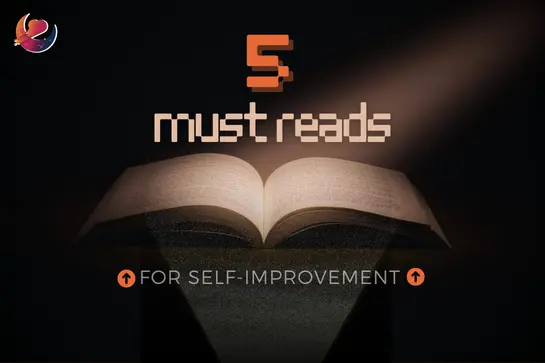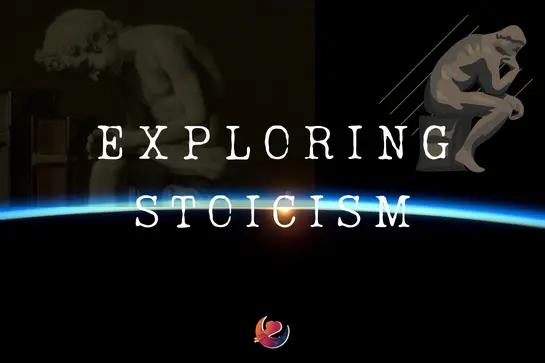By Sofia R. Sibila | 27th March, 2023
Problems are an inevitable part of life, but how we approach them can make all the difference. In this article, we draw on philosophical concepts to offer practical advice on how to spot, analyze, and overcome the challenges that come our way. From Descartes to Hobbes, we explore different perspectives on problem-solving and share ideas to help you grow through your struggles. Read on to discover how philosophy can help you lead a more fulfilling life.
We will always commit mistakes and problems will always come, but how can we make these problems worthwhile in our lives? Let’s find out!
Whenever I’m asked to write something personal, it feels imperative to write about my problems. Our problems are part of who we are and depending on their influences on us, they can dictate our lives. That’s why I want to make sure it’s clear I am not praising problems and traumas inside of us, but I will just try to help you to analyse your problems and grow through them (using some stuff I studied for my philosophy exam because we got to recycle knowledge to make greater knowledge, even if I’m not sure this article will have more influence than any of these guys).
How Can I Spot A Problem?
For me is especially hard to find what are the problems in my life, even though I know what these problems cause. For example, I can notice I’m doing badly in biology, but why? Why can’t I focus while playing? Why am I afraid of doing something new? Why can’t I chill down a bit?
Reasons are fundamental. Without them, we may believe in the wrong reasons. So, to spot the reason for a problem, we got to listen to what our Descartes pal said some time ago about perfect knowledge. He used to say that when we’re sure of something we cannot perceive it as wrong, we find ourselves in perfect certainty; that may be a problem if you’re sure of something that’s actually wrong. Imagine finding yourself in a state of mind in which you cannot find the problem because you don’t believe the problem can be a problem. That’s why Descartes was very into believing that we may not find anything to be sure, and that’s what we could do to spot a problem: don’t believe that something is good for you even when it looks like it. We can notice these in small things, like drinking and smoking, but with more abstract concepts such as the meaning of a friendship, the hard work to win a writing competition, and so on. When you ask yourself why you feel some way and consider anything - not depending if you find them good or bad - to be the reason, you may notice their connection with the problem.

This is the Descartes man, for those who don’t know. He believed we couldn’t believe in anything nor expect to find the true reason for anything, cool, right? He just doesn’t want us to believe too much in ourselves, and is he wrong?
Apart from this Descartes guy and what he had to say, we can take a valuable lesson from Thomas Hobbes, the leviathan guy. He said that we all have this instinct for destruction and that all humankind would be waiting to rain blood if there were no laws to repress this spirit, more or less. The importance of what he had to say is that we rely on a bigger power to take control of us, and talking about our personal problems, we don’t need a full monarchy to do so; just a good friend will be enough to make us feel small. This kind of misery it’s not connected to misery at all, it’s just a state where we notice from another perspective what are our problems, and when we find out they may seem small or even shaming. Here, I’m trying to tell you to try to find help from someone out of your mind, but that’s willing to connect with you and help you. The ideal would be a therapist because they are trained to help you, but I know it may be inviable for some people, but you can find a lot of people willing to chat for free with you, as on 7 cups. This may be a good start for seeking help.
You just have to know that having someone you respect to help you and give a different perspective may help you to know what to do and what not to do.

No one knows what is a leviathan or how is a leviathan, we just know that its first appearance was in the bible, described as a giant and very bad monster that lived in the ocean. Hobbes wrote a book named after it and my history teacher said it is a great book, and he is a nice guy so I believe him.
So, To Spot A Problem…
- Don’t believe so strongly that something is good or bad in your life. By doing that you may notice that the good things are not that good and the bad are not that bad. For example, noticing that you may be great at everything you do but you’re extremely exhausted and unhappy because you don’t focus on what you like, and that you won’t seem limited by caring the most about what you truly love.
- Get other perspectives on your problems. Ask for the advice of people you respect and let your certainty be shaken by other people’s beliefs.
Just be sure to not let yourself walk in circles when leading with your problems.
What To Do When You Already Know The Problem?
So now that you already know what is the problem, you can fix it (yay!). My goal is not to show how you can fix your problems because each problem is special but there is something to discuss, and our discussion will be based on the “liberté, égalité, fraternité” thing. Let’s talk about the Declaration of the Rights of the Man and the Citizen of 1789, or better, what it represents.

Just to make my history teacher proud of me, this Declaration was not fair. It left equality, liberty, and fraternity out for women and the french colonies (such as Haiti), but even though not being what it was meant to be, it was relevant and still is. I believe it’s essential to understand that we got to respect ourselves and give our minds and bodies what they need to do what they’re meant to do. Without rights, we may treat ourselves badly, so let’s see if the French have any advice that can still be used for confusing teenagers some decades ahead.
Article 2: The aim of every political association is the preservation of the natural and imprescriptible rights of Man. These rights are Liberty, Property, Safety, and Resistance to Oppression. Translated: you should give yourself the right to liberty (to think and try whatever you want to), property (the property was connected with working, so give yourself the right to work and learn with whatever you would like to), safety (the safety to be yourself) and Resistance to Oppression.
Article 8: The Law must prescribe only the punishments that are strictly and evidently necessary, and no one may be punished except by virtue of a Law drawn up and promulgated before the offence is committed, and legally applied. Translated: Don’t assume that it is your fault something went wrong because it’s easier, nor assume it is someone else’s fault because it’s easier.
Article 9: As every man is presumed innocent until he has been declared guilty, if it should be considered necessary to arrest him, any undue harshness that is not required to secure his person must be severely curbed by Law. Translated: Don’t go too harsh on yourself because of a mistake, learn to accept it happened and work to not let it happens again.
Article 11: The free communication of ideas and opinions is one of the most precious rights of man. Any citizen may therefore speak, write and publish freely, except what is tantamount to the abuse of this liberty in the cases determined by Law. Translated: Let yourself speak! Let others speak! Let’s all scream (respectfully).
So, To Summarize
How to spot a problem and its reason?
- Be neutral while judging and trying to find the reason why you fell that way (was it someone else fault that the band practice was bad or could you have been better?)
- Ask for other people’s opinions
What to have in mind when leading with your problems:
- Respect yourself, don’t stay until your neck mourning for a mistake
- Express yourself as you want but respect others. There is no problem with feeling angry, just have in mind to show how you feel in a respectful way if you have to talk with someone.
- Let yourself do whatever you want to. Don’t let a mistake limit what you believe your potential is.
Thumbnail Design by Mudit Jha






Forgot password?
Close message
Subscribe to this blog post's comments through...
Subscribe via email
SubscribeComments
Post a new comment
Comment as a Guest, or login:
Connected as (Logout)
Not displayed publicly.
Comments by IntenseDebate
Reply as a Guest, or login:
Connected as (Logout)
Not displayed publicly.